




















At its heart, the Greater Coachella Valley Chamber of Commerce embodies the essence of the “Voice of Business.” This role is not taken lightly; rather, it’s embraced with a profound sense of responsibility towards the community it serves. This responsibility takes shape in various ways, all geared towards bolstering the local business climate, fostering growth, and advocating for the interests of the business community.
The chamber’s commitment to enhancing the region’s business landscape is evident through its multifaceted approach. The GCVCC strives to enhance the overall business climate for their membership by being a catalyst for local commerce through their business development programs, a convener of elected officials, business professionals and thought leaders through our many member and public events, and a champion for the local business community through our advocacy work.
With a population that swells to nearly 750,000 during peak seasons, the Coachella Valley holds significant economic potential. This potential is harnessed by elected officials who oversee vital infrastructure and allocate budgets on local and regional levels. These officials, through their work, contribute to a growing employment base and essential tax revenues that fuel community development.
Yet, the impact of decisions isn’t confined to budgets alone. Daily choices made in city halls reverberate throughout the business community. Matters ranging from code compliance to zoning
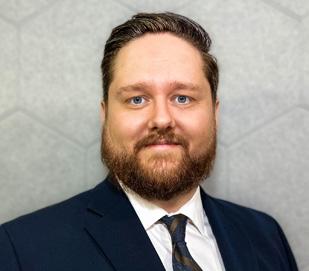

regulations shape the ease with which businesses can operate, innovate, and generate employment. The influence extends further to the county, state, and federal levels, where workplace mandates, taxation, and regulatory environments impose their effects. These factors collectively mold the landscape in which businesses operate, influencing growth trajectories and economic vitality.
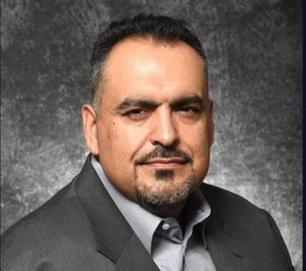
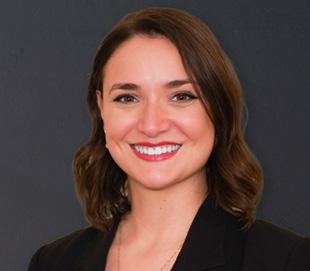
Driving the chamber’s advocacy efforts is an exceptional Business Legislative Advocacy Committee, bolstered by our experienced staff, chairs, committee members and public policy advisor. Their expertise lends weight to the chamber’s commitment to being the unequivocal “Voice of Business in the Coachella Valley.” The chamber’s non-partisan stance underscores its focus on collaboration and cooperation, transcending political affiliations for the greater good of the business community.
We hope you enjoy this relaunched edition of our Voice of Business magazine and find value in the content it provides. We hope to share the views, priorities and voting records of our elected leaders and governing bodies from across the Coachella Valley with our business community. Our primary goal is to report, in a fair and concise manner and often in their own words, how our elected officials are helping promote job growth in the valley.
Ultimately, the chamber acknowledges its indebtedness to the members, sponsors, and advertisers who enable its work. The harmonious relationship extends beyond the realm of government and industry to include these essential stakeholders.
Andrew McDuffie FirstBank Chairman of the Board, Greater Coachella Valley Chamber of Commerce Victoria Llort Coachella Valley Water District Co-Chair, Business Legislative Advocacy Committee Julio Figueroa AT&T Co-Chair, Business Legislative Advocacy Committee Brandon Marley Greater Coachella Valley Chamber of Commerce President and CEO




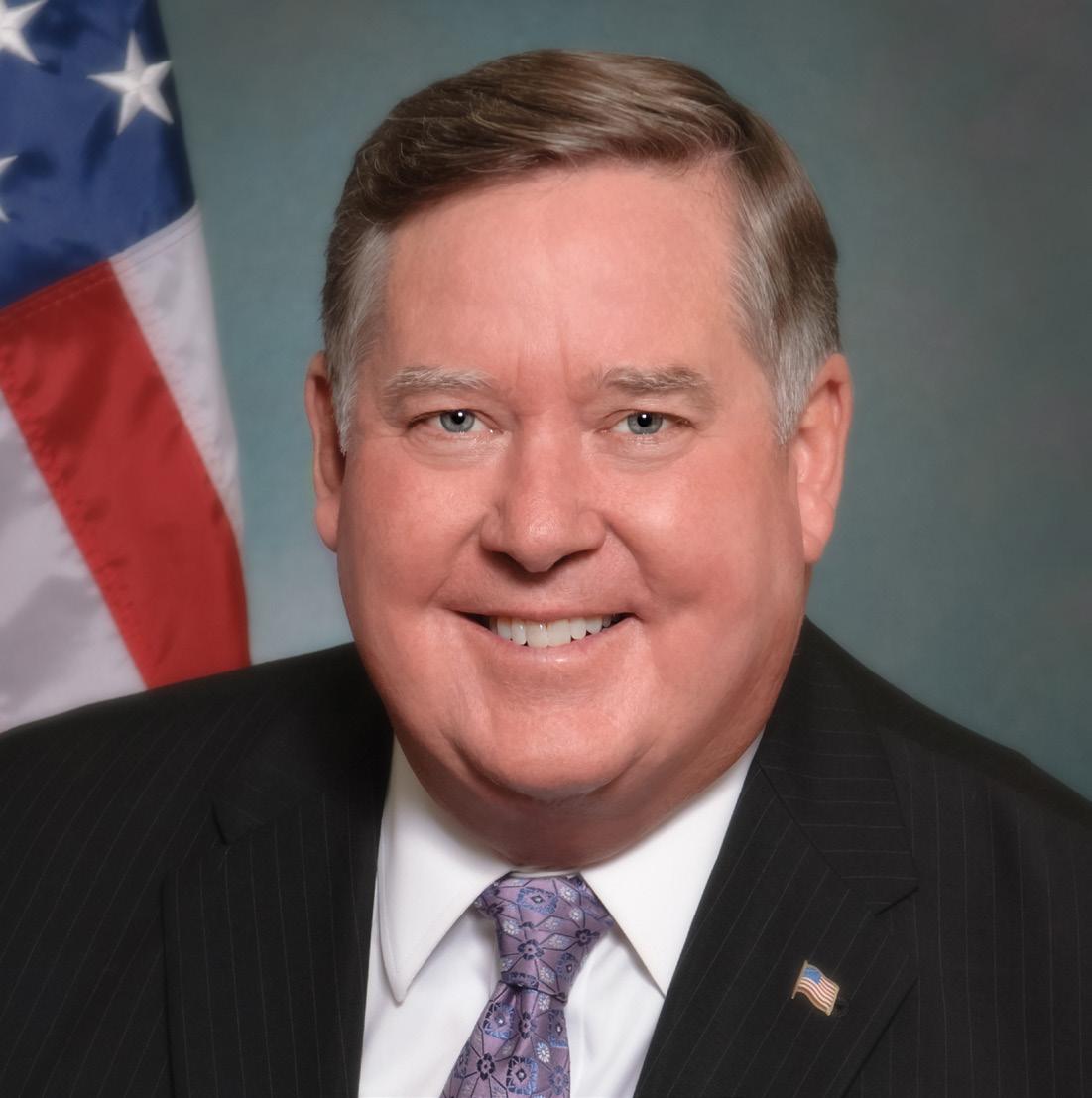 Story by: Congressman Ken Calvert Staff
Story by: Congressman Ken Calvert Staff
As a lifelong resident of Riverside County, I have seen tremendous change in our region throughout my life. The growth we have experienced has presented both opportunities and challenges. Working with our elected leaders, job creators, and community organizations to shape a better future is precisely what motivates me to fight for our region in the House of Representatives.
I was raised in a family that valued hard work and community service. I grew up working in our family businesses in Corona. My parents owned a bowling alley, coffee shop, and a family restaurant. As if running a business and raising three boys didn’t keep them busy enough, my parents also served in a variety of service clubs and my father served on the Corona City Council and served as mayor.
After college, I started a small business of my own. I learned what it was like signing the front of paycheck instead of the back. My commercial real estate business gave me an up-close look on the impacts of government policies, including taxes and regulations. Like my parents, I too felt the need to serve my community. I was a member of the Corona Rotary as well as the Corona Chamber of Commerce, where I would eventually serve as president.
In 1992, I ran for Congress because I wanted to be the voice for our community in Washington. Then, and now, I felt that far too many of the people we elect have no idea what it takes to run a business. Family-run small businesses are the backbone of our communities. And so many of them are just barely scraping by to keep the lights on and staff on payroll. One tax hike, one fee increase, or one new costly regulation might be the final straw that flips an “Open” sign to “Closed” for a small business.
In the House of Representatives, I have always been a staunch defender of lower taxes and cutting job-killing regulations. I want to get the government out of the way of our innovators and job creators who propel America’s economy and job growth.
Some of the best steps we can take to protect both our local and national economy include building the necessary infrastructure and securing affordable and reliable energy supplies. Of course, we need to invest in new roads and water storage projects, and I have proudly secured more federal funding for Riverside County infrastructure projects than any member of Congress in the history of our county. However, we also need to take long overdue steps that make building these projects cheaper and faster.
In many cases it now takes longer to study a project than it does to actually build it. That’s why I have introduced legislation – known as The REBUILD Act –that would eliminate the need for federal environmental impact reports if a project is already required to conduct an equally or more stringent state environmental impact report. This can save both time and money when it comes to building infrastructure – especially in California.
One of the biggest expenses for both residents and businesses in Riverside County is the cost of energy. I have always been a supporter of an all-of-the-above energy approach. The government should not be involved in selecting winners and losers. And we certainly should not be restraining American energy production and relying on foreign countries, that have no regard for safety or the environment, for energy supplies. When we produce energy in our country, our economy grows, our workforce benefits, and our tax base increases – all while prices for consumers become more affordable.
Conflicts in the Middle East and Russia’s invasion of Ukraine have underscored how vital it is to reduce our dependence on foreign sources of energy. Similarly, our reliance on Taiwan for 90% of the microchips we use is another national and economic security concern. If China were to invade Taiwan, they would be able to consolidate control of this critical manufacturing capability. Expanding microchip manufacturing in the U.S. and strengthening Taiwan’s ability to defend itself are significant priorities.
As the Chairman of the Defense Appropriations Subcommittee in the House, I have the privilege and serious responsibility of writing the bill the funds the U.S. military and our intelligence community. I am routinely inspired and comforted by the strength, determination, bravery and professionalism of the men and women who serve in our military. In addition to our troops, I believe American innovation is the key to our military edge. With a rising China, we can no longer assume military superiority. That is why one of my key initiatives as Chairman is putting programs and policies in place that reduce the time it takes to field new cutting-edge technologies on the battlefield.
The manner and space in which we have conflicts is changing rapidly. America has a vested national security and economic interest in leading the way in cyber, space and AI. We must invest in the workforce these domains require as well as the development of technology. As the
Co-Chair of the Bipartisan California Aerospace Caucus, these are exactly the types of efforts I am working on with my colleagues.
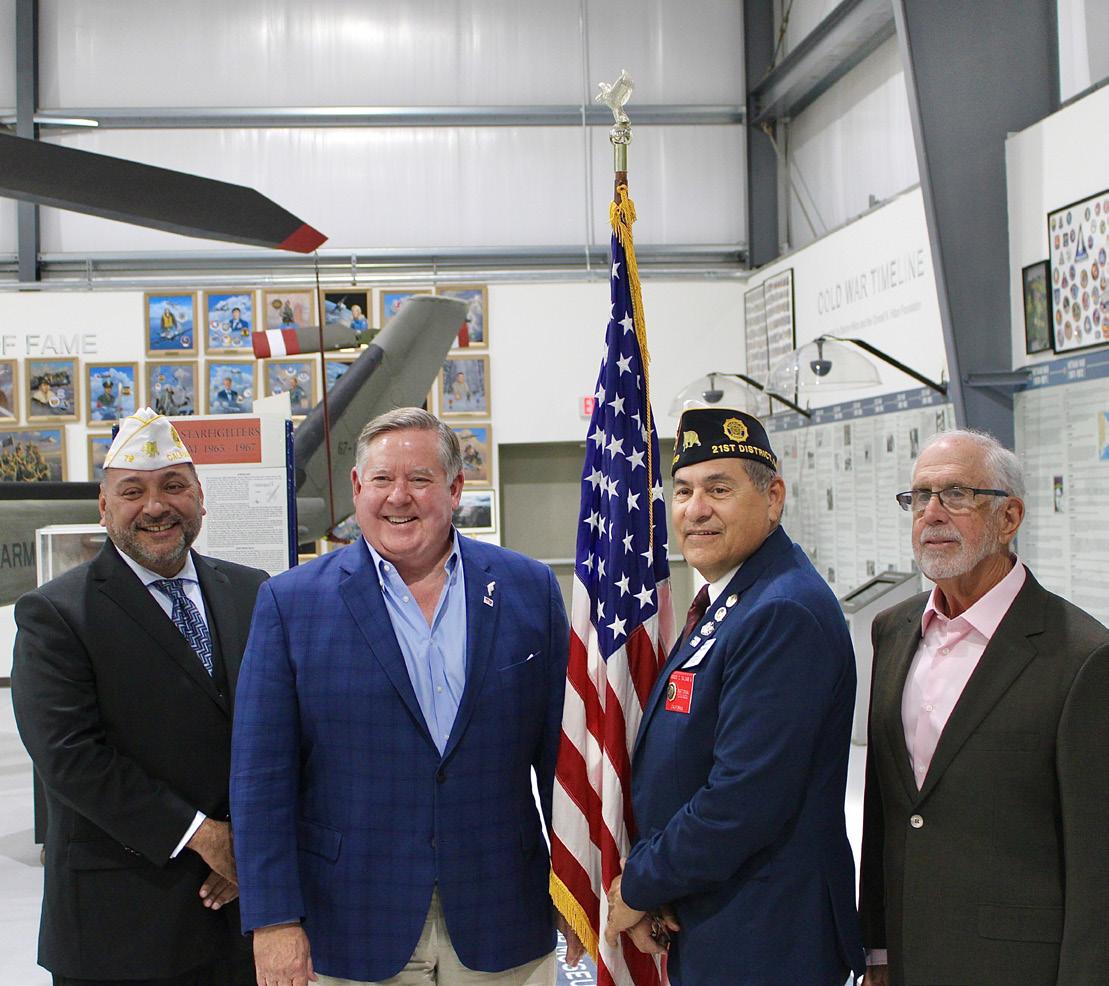
In so many areas we find opportunities and challenges. I am just as eager to work towards solutions as I was when I was first elected to Congress. I am thrilled to be representing portions of the Coachella Valley, and look forward to partnering with others to shape a bright future here in the region.
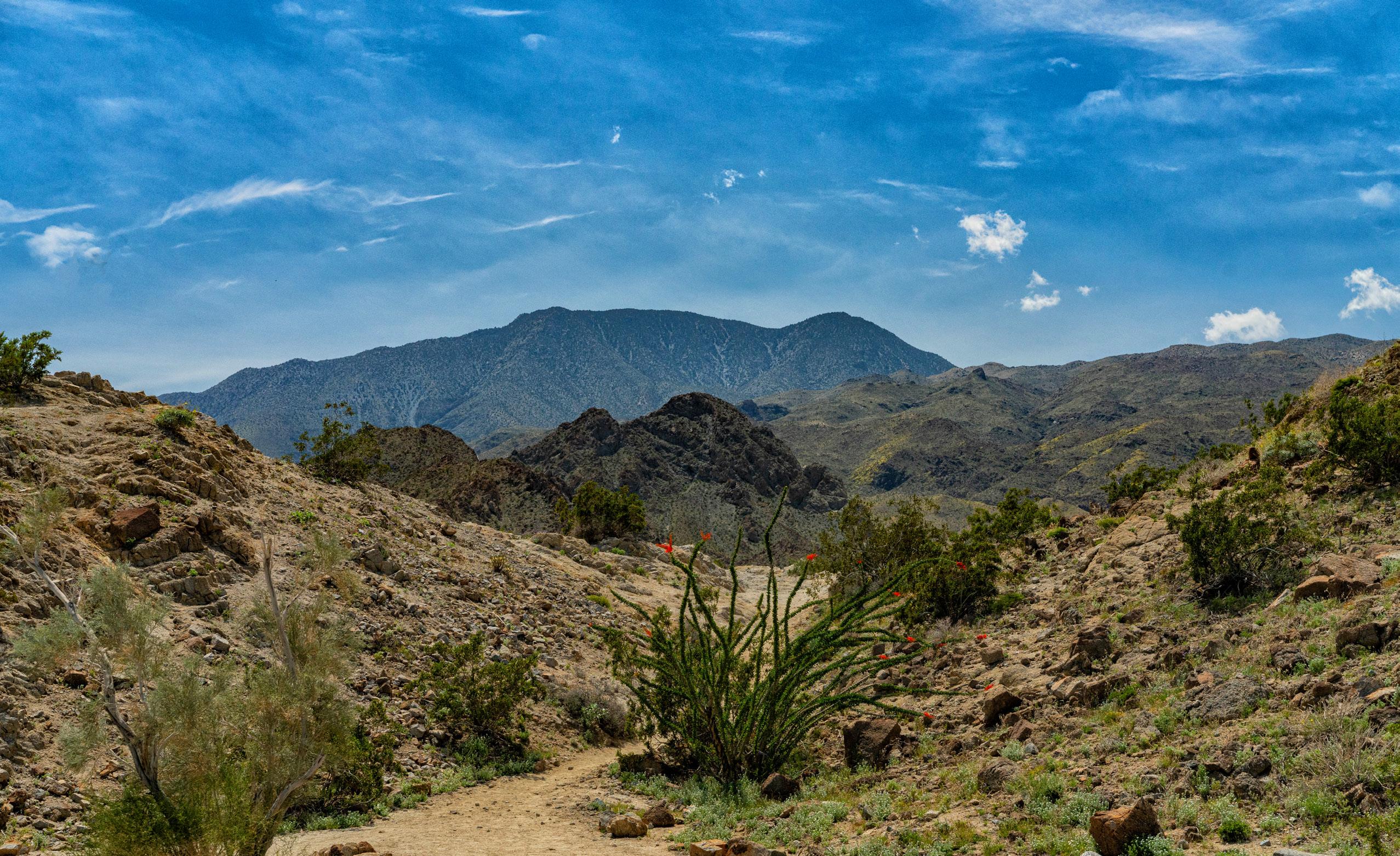
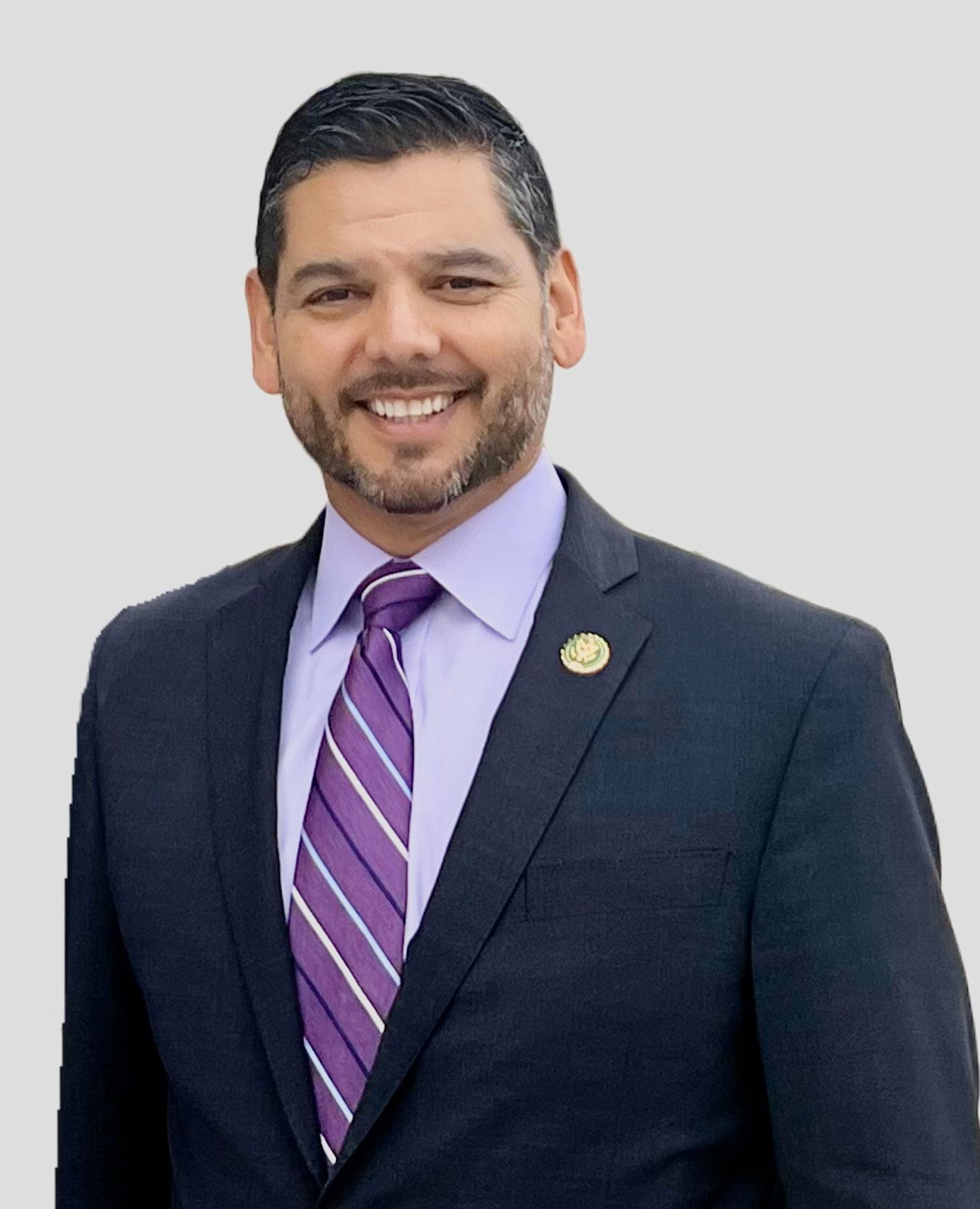 Story by: GCVCC Staff and Congressman Ruiz Staff
Story by: GCVCC Staff and Congressman Ruiz Staff
The GCVCC staff recently had a chance to speak with Congressman Ruiz and learn a bit about who represents the 25th Congressional District in California.
Tell us a bit about yourself and what got you into politics?
“Throughout my upbringing until now, my enduring aspiration has been to serve people. This drive led me to pursue higher education, culminating in a medical degree and a career as an Emergency Physician,” said Dr. Ruiz. “I grew up in the community of Coachella, where both of my parents were farm workers. Their values instilled in me a profound appreciation for education, even though the means to finance it were uncertain at the time. Therefore, I approached local businesses across the Coachella Valley and offered them an opportunity to invest in their community by supporting my education because, I committed to returning to my hometown to serve my community as a physician. During my medical practice, I encountered unemployed individuals from low-income backgrounds
in emergency rooms, struggling to afford prescription medications and grappling with limited access to education and housing resources in underserved areas. Witnessing these challenges, I felt compelled to make a more significant impact on my community. I realized that true change would necessitate involvement in the decision-making processes, prompting my decision to run for public office.”
What steps do you believe should be taken to ensure that our country’s economy continues to grow, and what role do you believe the government should play in facilitating that growth?
“Congress must adopt a pragmatic and proactive approach towards fostering robust employment opportunities and invigorating our economy,” said Dr. Ruiz. “It is imperative that Members of Congress collaborate in a bipartisan manner to identify viable solutions that drive down costs, cultivate job growth, and empower the prosperity of small business proprietors. Since 2014, my office has been committed to catalyzing the establishment of clean energy jobs, which have the potential to employ numerous individuals within the region, thanks to initiatives like the Renewable Energy Jobs Act. I have been resolute in advocating for legislation that channels investments into American communities by advancing the realms of science, technology, and manufacturing. My dedication to this cause is also exemplified in my support for the bipartisan CHIPS and Science Act of 2022. I remain steadfast in my commitment to ensuring that our community remains at the forefront of progress. I will continue to champion the cause of the working class, upholding the principles of inclusivity and equitable advancement.”
The Coachella Valley, along with the rest of the Inland Empire, often is left behind in terms of receiving its fair share of infrastructure dollars. What can be done to improve this situation?
“Our communities need legislation that creates direct results and invests in the lives of people living in rural and underserved communities,” said Dr. Ruiz. “During my time in office, I have passed legislation such as the Invest in America Act that provided the City of Indio a $20 million grant to upgrade and expand I-10 interchange, the Clean Drinking Water Equity Act that ensured all community members have access to clean drinking water. Recently, the City of Calexico received
a $12.8 million grant that will be used to build an Intermodal Transportation Center, awarded through the Rebuilding American Infrastructure with Sustainability and Equity, or RAISE, program.”
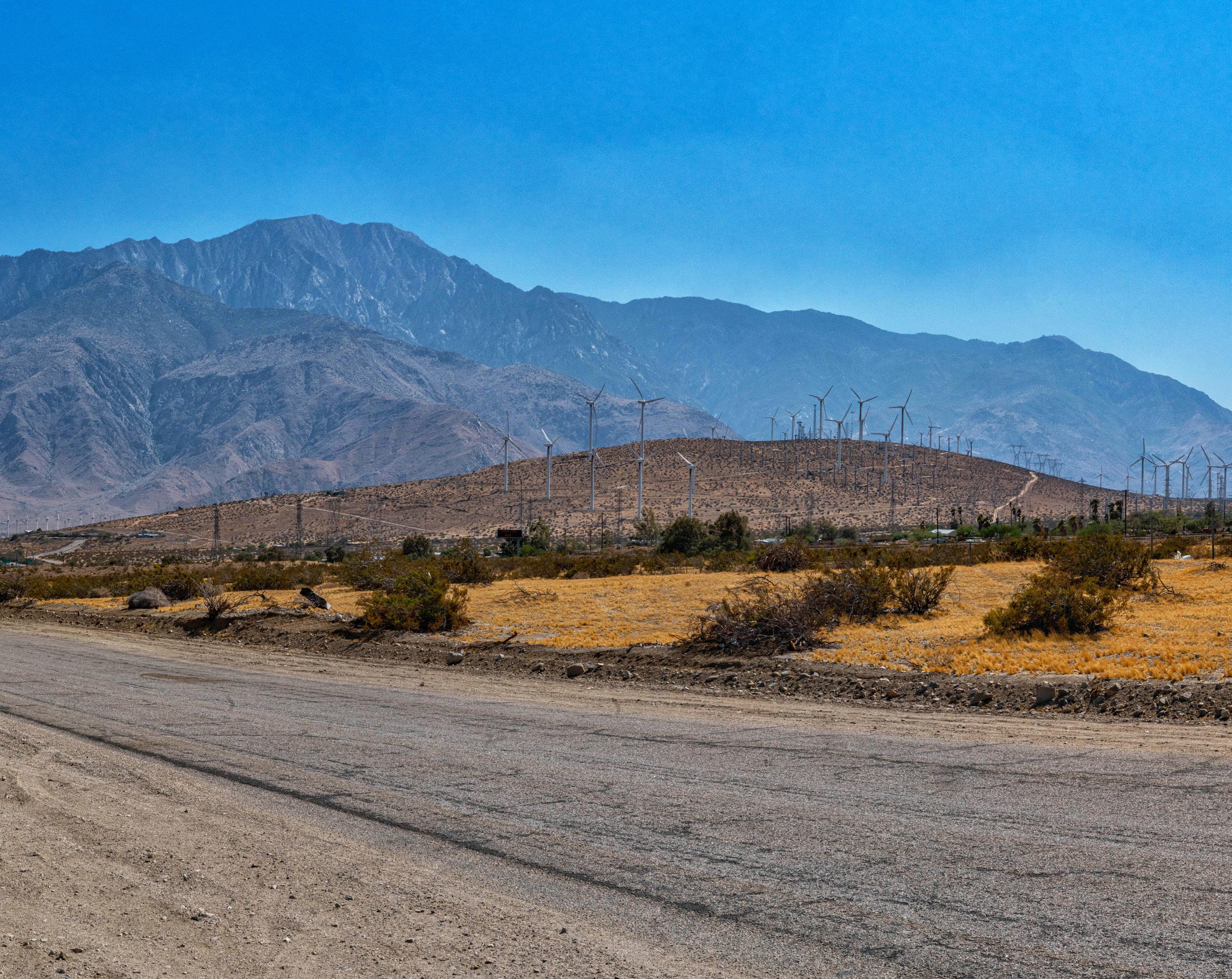
From a business perspective, what is your opinion on the current state of federal healthcare policy, and how do you think it affects businesses’ ability to provide affordable healthcare to their employees?
The current state of our federal health care policy has significant implications for employers and their ability to provide affordable healthcare to their employees,” said Dr. Ruiz. “It is crucial that we address rising health care costs and ensure that businesses, especially small and medium-sized ones, can offer quality coverage without being burdened by excessive expenses. By implementing policies that promote cost containment, expand access to insurance, and support preventative care, legislators can create a healthier workforce and a more competitive business environment.”

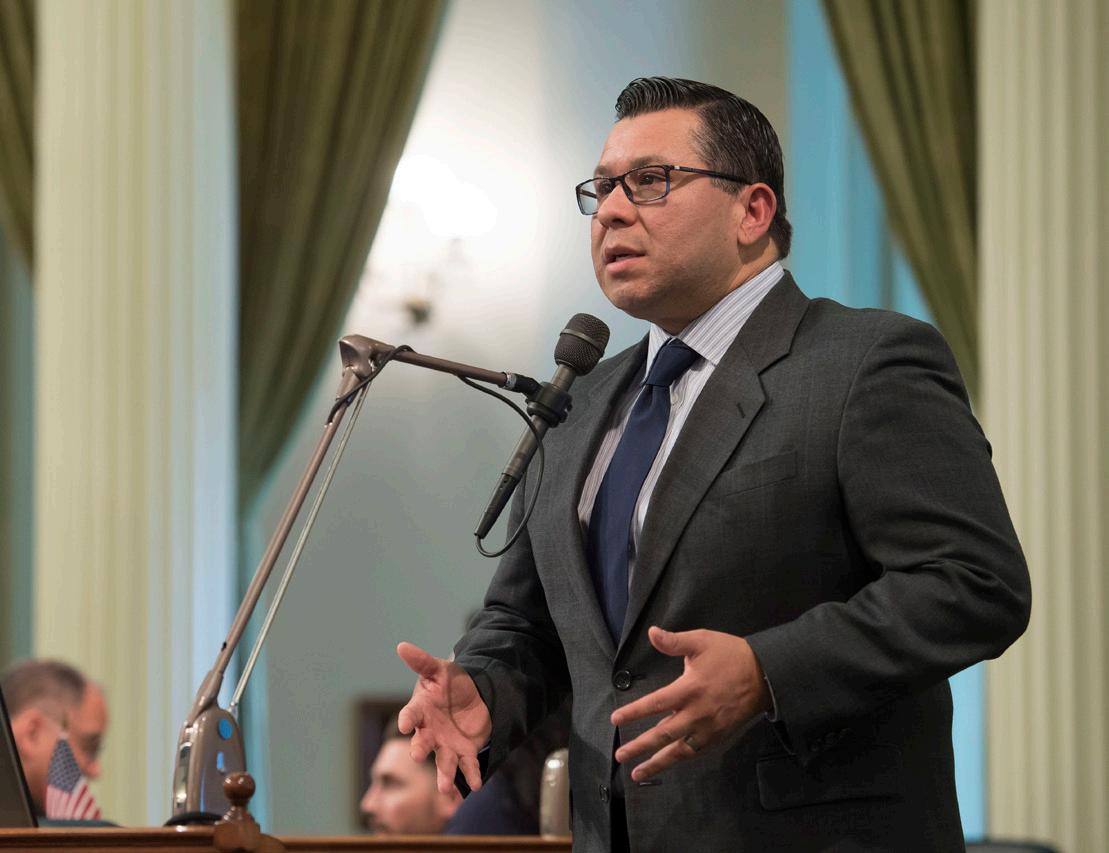 Story by: GCVCC Staff and Assemblymember Garcia Staff
Story by: GCVCC Staff and Assemblymember Garcia Staff
The GCVCC staff recently had a chance to speak with Assemblymember Garcia and learn a bit about who represents the 36th State Assembly District in California.
I am a proud father, husband, and lifelong resident of Coachella with family in Imperial Valley as well. While attending Coachella Valley High School, l was fortunate to get a job recording the council meetings. Through that experience, I developed an appreciation for local government and discovered the impact of public service to uplift communities. This opportunity inspired me to study Political Science and pursue public service.
Before my election to the California State Assembly in 2014, I dedicated a decade in local government. I served as the City of Coachella’s first elected Mayor at the age of 29. Our engagement with residents and businesses helped transform the City of Coachella, improving access to infrastructure, housing, parks, and other resources while revitalizing economic opportunities.
After graduating from College of the Desert, I obtained a degree from the University of California, Riverside, in Political Science with a minor in Native American Studies. I additionally earned a Master’s Degree from the University of Southern California School of Policy, Planning, and Development and completed a Senior Executives in State and Local Government Public Administration Program from the John F. Kennedy School of Government at Harvard University.
We have brought historic state investments to our region, including nearly $600 million in secured and committed Salton Sea funding. Legislation we have authored has allocated these funds as well as expedited project construction. Thanks to our steadfast advocacy, the State of California is near completion of the Species Conservation Habitat Project, a large-scale Salton Sea project that will greatly improve our air quality.
The expansion of our California State University, San Bernardino’s Palm Desert Campus is a major priority for our community, along with efforts to establish a standalone California State University in the Coachella Valley. Assemblymember Chad Mayes and I secured a $79 million 2022 budget investment to construct a new student services center. This year, we were focused on protecting those higher education funds as California faced a challenging fiscal outlook.
Together with local school districts, we have ramped up advocacy efforts to increase funding for early childhood education and our K-12 system, including resources for career technical education, special needs, and mental health.”
Homelessness remains a deep concern for our Coachella Valley business community. We have been working to direct additional funding for housing and mental health services needed to address this issue. We were able to award the County of Riverside with $76 million to build an innovative Behavioral Health campus in the City of Coachella that will provide treatment and transitional housing.
This year, in collaboration with our colleagues, we have been exploring solutions to combat the fentanyl crisis and taking action to equip local public safety agencies with the support and resources they need.
Access to high-speed internet and protection from cybersecurity is critical to the success of our local economy and growth of businesses. We have taken a leading role in ensuring internet equity through legislation and by successfully delivering billions in state funds to expand broadband infrastructure in rural areas like ours lacking connectivity. This year, we authored cybersecurity workforce development legislation supported by the California Chamber of Commerce. This bill has already been signed into law.
As Chair of the Assembly Committee on Utilities and Energy, one of our top priorities is ensuring the reliability and affordability of energy for residents and businesses. We have spearheaded oversight and collaborated with the Governor’s office to balance and stabilize our state’s energy system. This is especially important for desert communities prone to power outages.
We are constantly monitoring for available resources and policy solutions to uplift the economy, improve public health, and support innovation and entrepreneurship to make our region a great place to work, live, and grow businesses. Importantly, we are extremely active in the development of Lithium Valley to ensure our community benefits from this gamechanging opportunity.
Our first few years in the Legislature, we presided as Chair of the Jobs, Economic Development, and the Economy Committee. Since then, we have been pushing to increase our region’s eligibility for business tax credits, small business grants, and resources for workforce development. We created and funded a new workforce grant program called Breaking Barriers to Employment that has already invested resources for local businesses and nonprofits.
Broadband is an ongoing issue throughout the Coachella Valley and limits the diversification of business throughout the region. What are you doing to create regional and statewide efforts to improve it?
In the State Legislature, we have championed expanding access to affordable, high-speed internet and broadband infrastructure to bridge the digital divide in underserved rural areas like the Coachella Valley. We sit on the Assembly Committee on Communications and Conveyance and have been appointed to the state’s Closing the Digital Divide Task Force. In 2017, we authored AB 1665, the Internet for All Now Act, landmark legislation that improved and extended $300 million into the California Advanced Services Fund for broadband infrastructure projects. In 2021, we dedicated a historic $6 billion broadband budget investment to support areas like ours. We successfully pushed to have the Coachella Valley selected as one of the state’s initial Middle Mile Initiative projects. Our Coachella Valley Association of Governments is leading the project. It is exciting to see our local efforts come together with the support we secured from our state, and we must keep working to deliver our region’s fair share of resources. Access to high-speed internet has become far more than a passport to opportunity and economic vitality; it is absolutely essential to our overall health, safety, education, and numerous other aspects of daily life.
Housing supply and affordability remain among the state’s top issues. What policy changes or programs can we expect to be discussed this year to solve this problem?
Over the last few years, our work has secured hundreds of millions in state resources for affordable housing projects across our district. This includes housing for families, veterans, seniors, farmworkers, and tribal communities.
A few months ago, we were excited to announce $38 million from the State of California for Coachella Valley Housing Coalition projects in Indio. We recently obtained $15 million from the state budget for the Lift to Rise Coachella Valley’s Housing Catalyst Fund, a groundbreaking investment that will accelerate housing production on projects identified as regional priorities.
This year, we introduced new legislation to support farmworker family housing, increase housing in tribal communities like ours, and that would streamline the process for student housing solutions. We have been connecting local municipalities and nonprofits with state grants and loan programs. As well as amending policies to ensure greater funding eligibility so our area can better compete for funding.
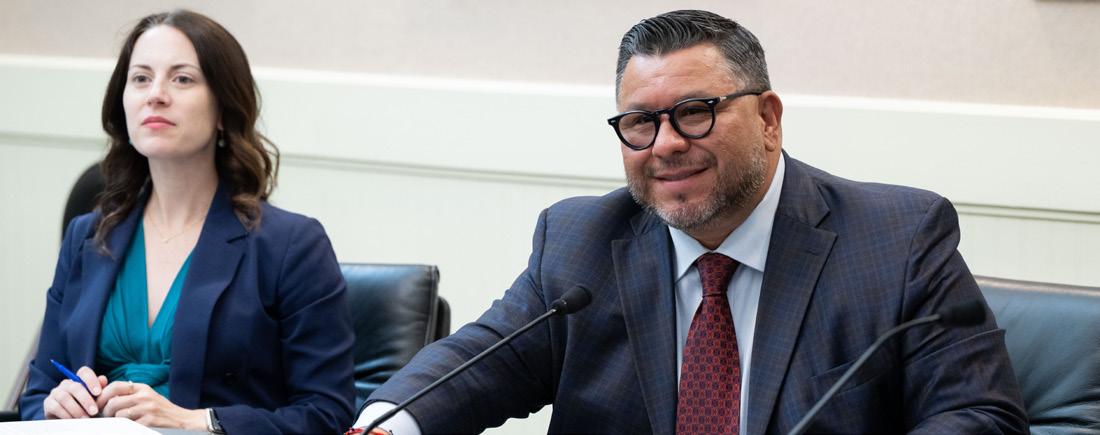
Building out housing in some areas of our valley requires the development of more adequate infrastructure. We have been crafting legislation and pursuing state resources to tackle these longstanding road, water, and other infrastructure disparities. Our policy work has helped Coachella Valley Water District receive over $30 million to improve eastern Coachella Valley water infrastructure, that is critical to the growth and development of houses and businesses. We have also found great success utilizing California Climate Investments, a funding source our legislation preserved, to fund road and transportation improvements as well as several affordable housing projects. In the last few years, we’ve secured over $58.4 million in California Climate Investments for district housing projects.
We also allocated $30 million to help relocate Oasis Mobile Home Park residents experiencing a humanitarian crisis and create more affordable housing options in the eastern Coachella Valley. Our office remains proactive in finding new ways to expand access to affordable housing in collaboration with state, county, and municipal partners.
The GCVCC staff recently had a chance to speak with Assemblymember Wallis and learn a bit about who represents the 47th State Assembly District in California.
Tell us a bit about yourself and what got you into politics?
My name is Greg Wallis, and I’m a native, third generation Californian. I came to the Coachella Valley over a decade ago and settled down in Bermuda Dunes with my high school sweetheart Desiree. My wife and I share our home with our Great Dane named Harley and an Australian Cattle Dog called Gunner. My involvement in community service began with volunteering for children, coaching young golf enthusiasts, and aiding local organizations like the Boys & Girls Club. I have always been interested in public service and when I saw my friends and neighbors leaving California due to cost of living issues, I was inspired to run for Assembly to represent our region up in Sacramento.
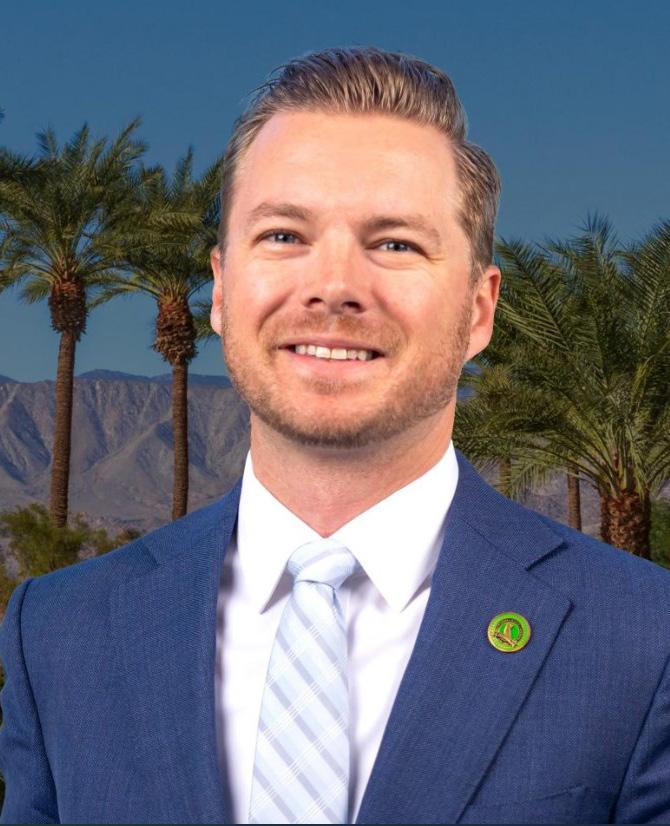
What are the top issues now that you’re working on for the Coachella Valley business community?
Right now I am focused on affordability, improving access to education and strengthening public safety, all of which touch our business community. Most of us in this region commute to work, school or local businesses using our cars, and the California gas price increases have hit us harder than other parts of the state. I know that with limited funds and gas and energy price increases, families have less money left in their budgets to spend at local businesses. I sit on the Assembly Committee on Utilities and Energy where we are looking at legislation to increase energy affordability which is vital to our region and our businesses who face enormous energy costs. I am working on access to higher education and education affordability, so that our businesses have a thriving workforce to depend on and students do not face debt that may inhibit them from becoming entrepreneurs. I know businesses are facing increasing crime rates and theft, so I am working with our state and local law enforcement agencies to make safety a priority for everyone.
Broadband is an ongoing issue throughout the Coachella Valley and limits the diversification of business throughout the region. What are you doing to create regional and statewide efforts to improve it?
Our region has significant wealth but also very striking poverty and the lack of broadband infrastructure here exacerbates this divide. In 2021 the legislature passed SB-156 which was signed by the Governor to create an infrastructure for broadband that we are in the process of building out. The California Public Utilities Commission (CPUC) is implementing investments in creating an open-access statewide broadband middle-mile network and funding broadband last mile infrastructure projects across the state by supporting local government broadband infrastructure development and funding Tribal entities. I am in constant communication with the CPUC and county, city and tribal leaders on this issue because each of our communities has different needs related to this issue.
Property crime continues to rise in California. What is the legislature doing to protect residents and businesses?

I am extremely appreciative of the work of our local law enforcement officers in the Riverside and San Bernardino County Sheriff’s Offices and police officers in our cities throughout the Coachella Valley. The legislature as a whole needs to do more to support our local public safety officers who doing their best to prevent these rising crimes from increasing further. There were a lot of great safety bills proposed this year that would enhance penalties for certain crimes but unfortunately many bills did not make it through the legislative process. I am working with my colleagues
from both parties to discuss solutions to this issue. The fact of the matter is that every person deserves to feel safe at home, at work or out shopping for groceries and this should not be a partisan issue.
Serving in the State Assembly is an honor and I am very grateful to my constituents in the 47th Assembly District for putting their trust in me. If I may ever be of any assistance to you or your business on state issues, please do not hesitate to contact me and my office at Assemblymember.Wallis@assembly.ca.gov or (760) 3466342.
The GCVCC staff recently had a chance to speak with Senator Seyarto and learn a bit about who represents the 32nd State Senate District in California.
Can you tell us a bit about yourself and what got you into politics?
In 2015, I retired from L.A. County Fire as a Battalion Chief after a 35 year career. I am also a former councilmember and Mayor for the City of Murrieta. I was first elected in 1997 and served through 2006. I took a break to spend more time with my family and focus on my career in the fire service, then returned to serve on the council again in 2016. In 2020, I was approached to run for local office and subsequently to run for the open Assembly seat in what was then the 67th District.
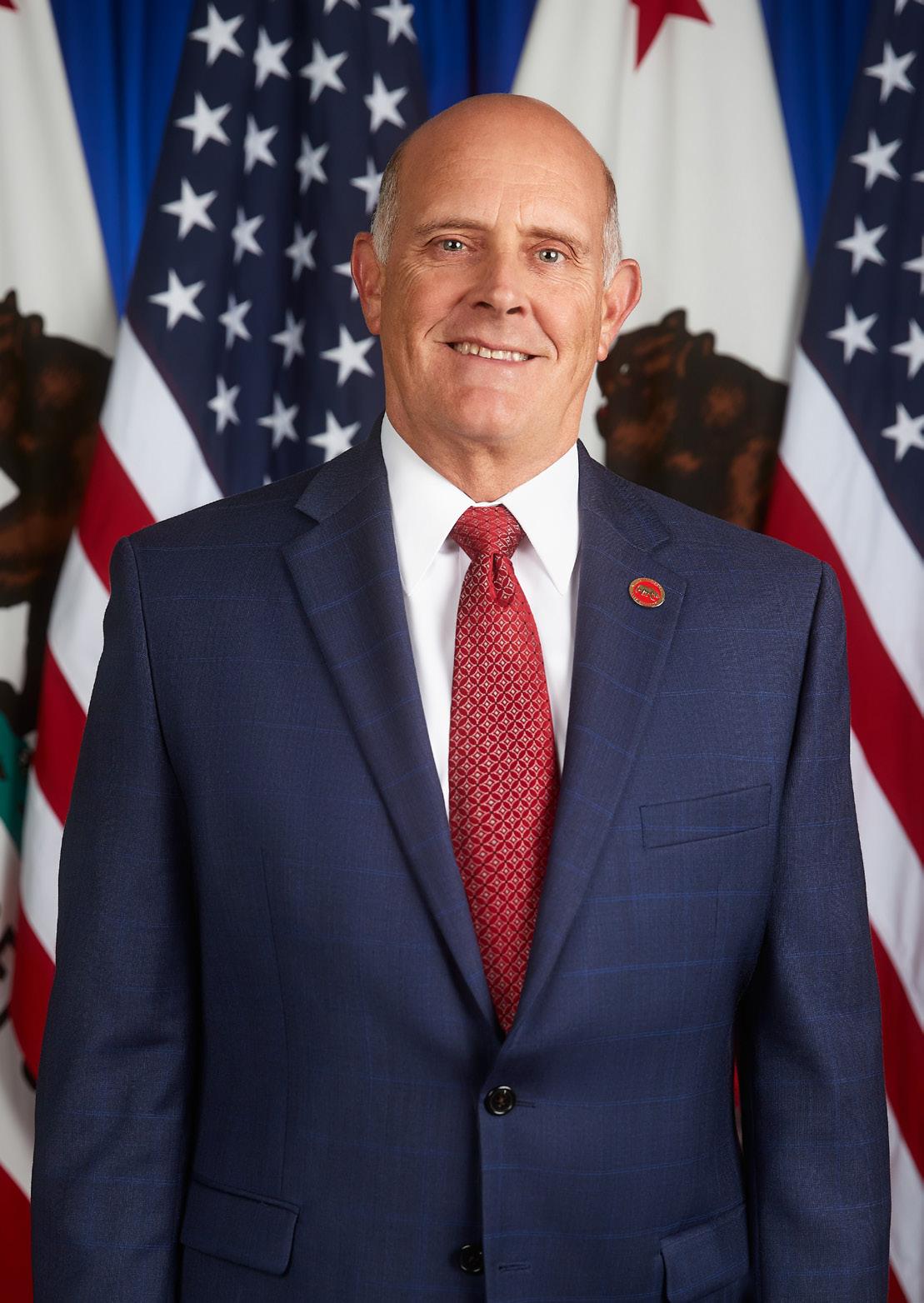
What are the top issues now that you’re working on for the Coachella Valley business community?
My focus is always to minimize restrictions and red tape for business owners so they can thrive and set their businesses up in a way that fits their community’s needs and values. We need to support policies that help our businesses and make sure they have a clear pathway to success.
Broadband is an ongoing issue throughout the Coachella Valley and limits the diversification of business throughout the region. What are you doing to create regional and statewide efforts to improve it?
Parts of our district certainly lack the necessary connectivity to be able to function properly in today’s technology climate. I have supported legislation that furthers the infrastructure needs of those areas, such as AB 965 (Carrillo), and will always be an advocate for our district getting additional resources. Some funding is available through the Last Mile Federal Funding Account.
What can be done by the Legislature to reign in the cost of healthcare for Californians?
We need to pass laws that allow hospitals to determine how to operate according to their needs, instead of bills like SB 525 which mandates $25 per hour for every hospital worker and ancillary support services, and is just not realistic. Carelessly increasing these operating costs for hospitals will only result in more hospital closures which in turn is more dangerous for our
communities, when people cannot access healthcare, and add the burden on constituents.
Some of the most important issues facing our district right now include making sure that we secure funding to improve traffic flow and ensure the safety of our roads. Our basic infrastructure needs cannot be overlooked because they also contribute to things like wildfire mitigation, which is another huge hurdle that we need to work on together. An issue I am hoping will be addressed partly through my bill, SB 19, is the fentanyl epidemic that has been sweeping our state. The bill gives us the opportunity to assemble experts in the field along with legislators and other stakeholders who will advise on the best ways that we can tackle this crisis and lower the impact on our communities.

As we move into September, we near the end of the legislative calendar. We’re only a few weeks away from the September 14th deadline for both houses to pass bills before they can move to the Governor’s desk for action.
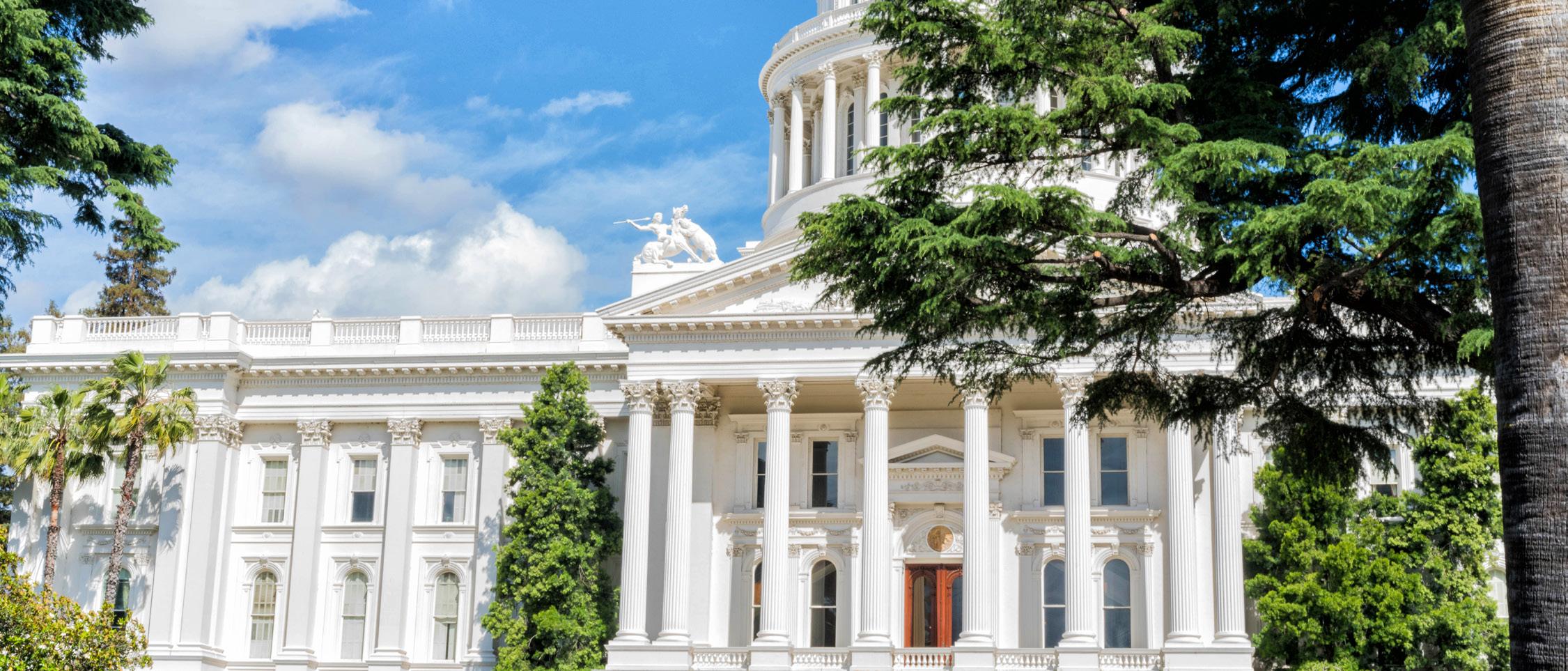
Upon the legislature reconvening after their summer recess, the Greater Coachella Valley Chamber of Commerce (GCVCC) tracked the rapid movement of many bills that became inactive or in suspense, transferred to a 2-year pathway, and those that have moved forward in the committee process.
We have taken 52 total positions
There are a few bills we’re still concerned with this year that are likely to be heard in the next few weeks and advanced to a final floor vote. Two that we’re most concerned with are SB 616 and SB 525. SB 616 adds 4 additional days of paid sick leave, from three days to seven days, to all employees. For employers with small businesses, this increase will not only be more expensive, but will make scheduling more difficult. SB 525 raises minimum wages for healthcare employees to
$25/hr. A few major problems- first, picking an industry and singling out wage policy is bad enough, and it will make healthcare much more expensive. We’re fighting to stop these and others as we get to the finish line.
In the ‘good news’ category is SB 399 from Senator Wahab- the bill has stopped for the year and is now a 2-year bill. SB 399 would make it essentially illegal for employers to discuss important matters with employees- like public policy and legislation. On this issue, we will continue to monitor and be prepared to take action during the next legislative calendar.
In August, we monitored the progress of a new bill regarding unemployment insurance eligibility. Now with an official bill number, SB 799 would allow striking workers to claim unemployment. With more people drawing from an already bankrupt UI fund, the current $18 billion UI fund debt will increase. That money needs to be paid back and will be done by raising premiums on all employers. We’re opposed to adding to the number of people who can draw from the UI fund, especially with the fund’s deficit.
After the September 14th deadline, bills go to the Governor’s desk to be signed or vetoed.
For more information on GCVCC legislative efforts and to see our legislative platform, visit gcvcc.org.
We strive to enhance the overall business climate for our membership by being a catalyst for local commerce through our business development programs, a convener of elected officials, business professionals and thought leaders through our many member and public events, and a champion for the local business community through our advocacy work.


Learn more about how the Tourism Foundation supports our local hospitality workforce through student scholarships, training and certification programs, internships, and more.

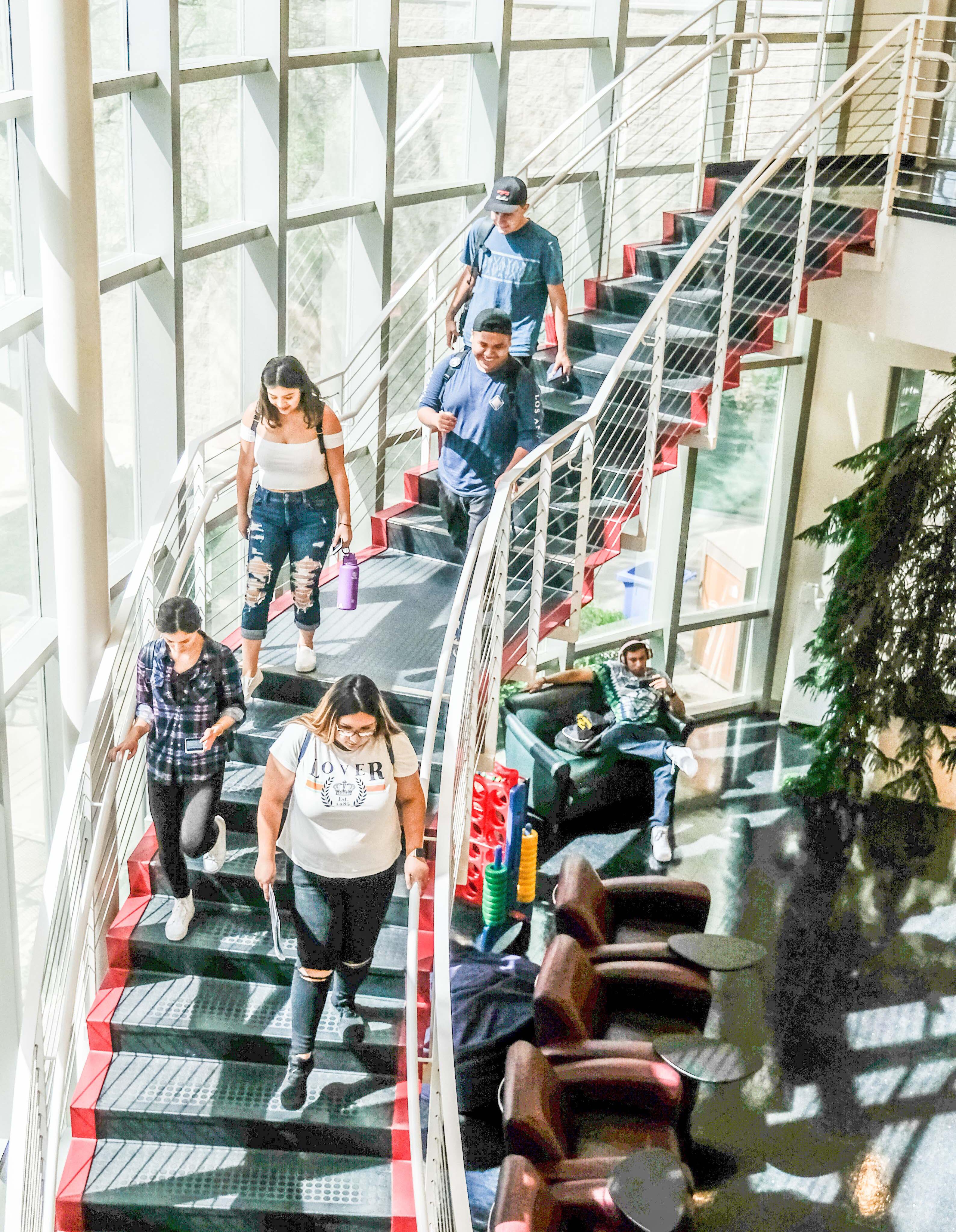
NEW WAY TO M POWER YOUR TEAM.
Confidence is key, both in racing and in reaching your own team’s goals. We can help you build more with a specialized day at the BMW Performance Driving School. Our pro instructors will guide you through challenging driving exercises that are designed to inspire and excite, and our facility is equipped with conference rooms and catering options to ensure your day stays on track. Our fleet of powerful BMWs awaits, ready to add some extra M to your team.
For more information, call 888-345-4269 or scan the code with your smart phone.
